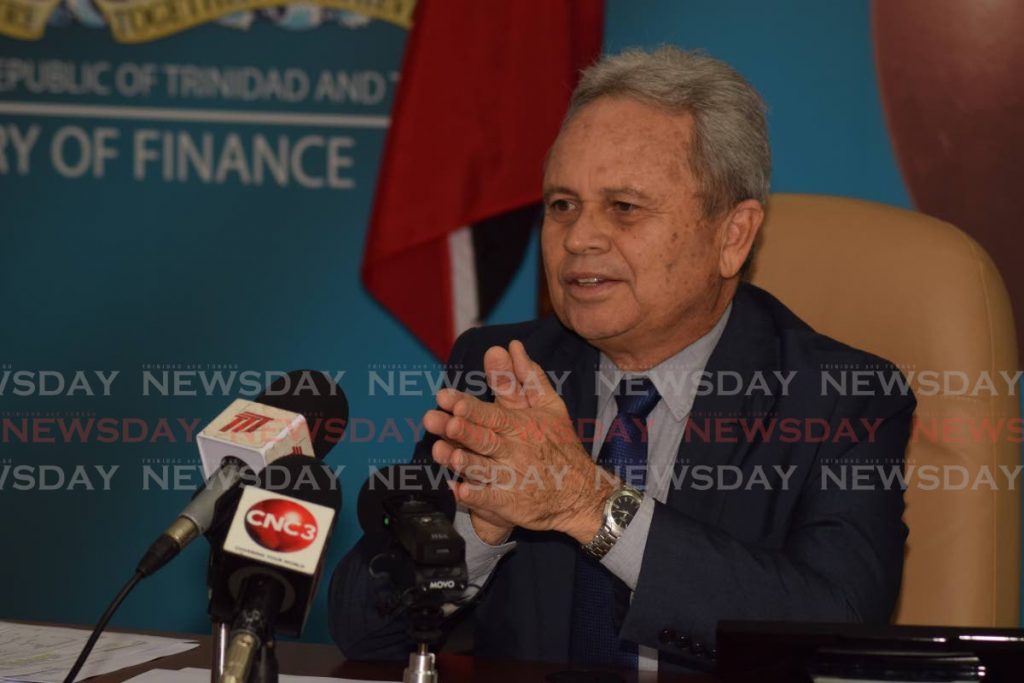Imbert: Adding self-employed to national insurance 'prohibitive'

Finance Minister Colm Imbert said Tuesday that the initial financial cost to government to bring self-employed people into the national insurance system (NIS) would be prohibitive. It was not certain this cost could ever be recovered, he added.
Speaking to the Senate, in response to a question by Independent Senator Amrita Deonarine, Imbert said a 2020 report of the high-level working committee on the inclusion of the self-employed into the national insurance system is being reviewed by the Finance Ministry. He said the committee will make a presentation to him on its findings and recommendations shortly.
Imbert said the committee had been formed in 2010 and had submitted several reports to various governments on the issue since then.
“In all studies over the years, the introduction of self-employed people into the NIS requires a substantial initial financial contribution by the government in the millions of dollars to cater for older and low-income self-employed people, and it is not readily apparent that this contribution could ever be recovered. While in the long term, the inclusion of more contributors in the NIS should yield further income for the system, the initial cost to the government appears prohibitive.”
Imbert said making the findings of the report available to the public would be subject to cabinet approval.
Deonarine also queried the errors noted in the country’s balance of payments account in the Central Bank’s Monetary Policy Report 2020. Imbert said the computation of the balance of payments was the direct responsibility of the Central Bank, which at his request would be putting measures in place to make it more accurate.
“Net errors and omissions are a balancing item in a country’s balance of payments, which is a statement of all transactions made between entities in one country and the rest of the world over a defined period of time. The Central Bank has advised that several elements of the balance of payments are estimated based on available data which is not always accurate and the compilation of the balance of payments requires a number of activities to be carried out, including a series of surveys administered by the Central Bank to resident private and public sector financial and non-financial corporations and companies in the energy, manufacturing and service sectors, among others.”
He said the bank said its surveys don’t include several companies and sectors, and the response rate averages approximately 70 per cent.
“It should be noted that there is no consequence if firms do not respond to the questionnaires or the surveys, so that moral suasion is the primary means of securing responses from companies with respect to the balance of payments. Another contributor to net errors and omissions is errors in reporting from entities, sometimes due to unfamiliarity with technical concepts.”
Imbert said in a perfect world a country’s balance of payments should always balance as goods, services and resources traded internationally are paid for and every movement of a product is thus offset by a balancing movement of money or some other financial asset. A country's balance of payments comprises two main accounts, the current account, which measures the difference in imports and exports, and the capital account, which measures changes in national ownership/the flow of investment in a country.
“The current account and the capital account are thus always supposed to balance. In view of the reported size of errors and omissions in the balance of payments, the Finance Minister has asked the Central Bank to propose ways and means of improving the accuracy of the information it gathers and its methodology regarding the computation of balance of payments.”
Imbert said the Central Bank would present its report on improving its accuracy by next month.


Comments
"Imbert: Adding self-employed to national insurance ‘prohibitive’"